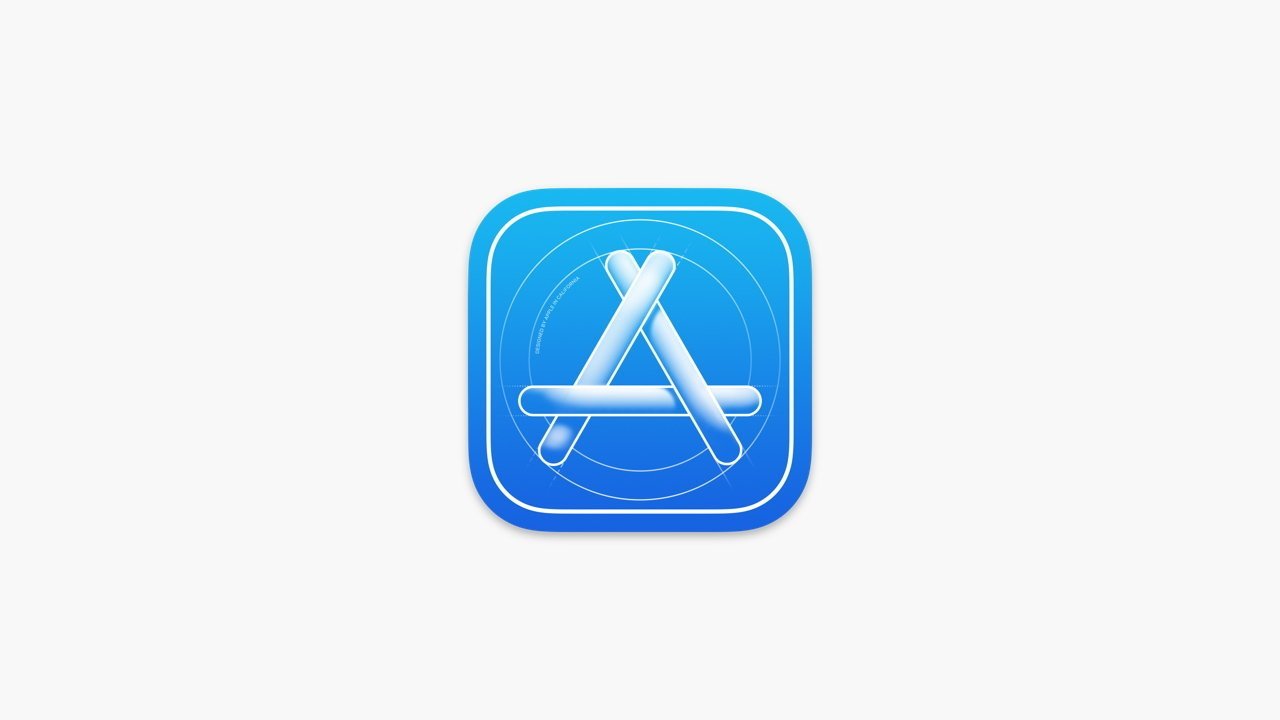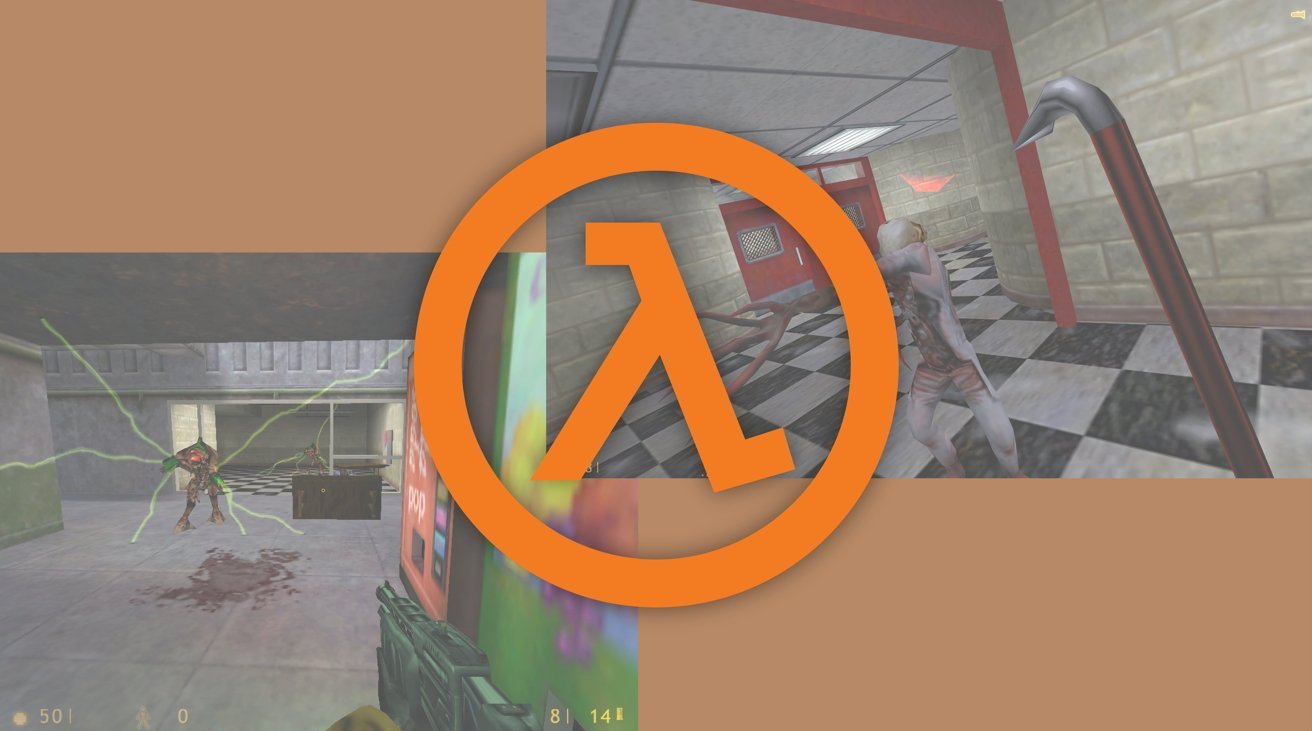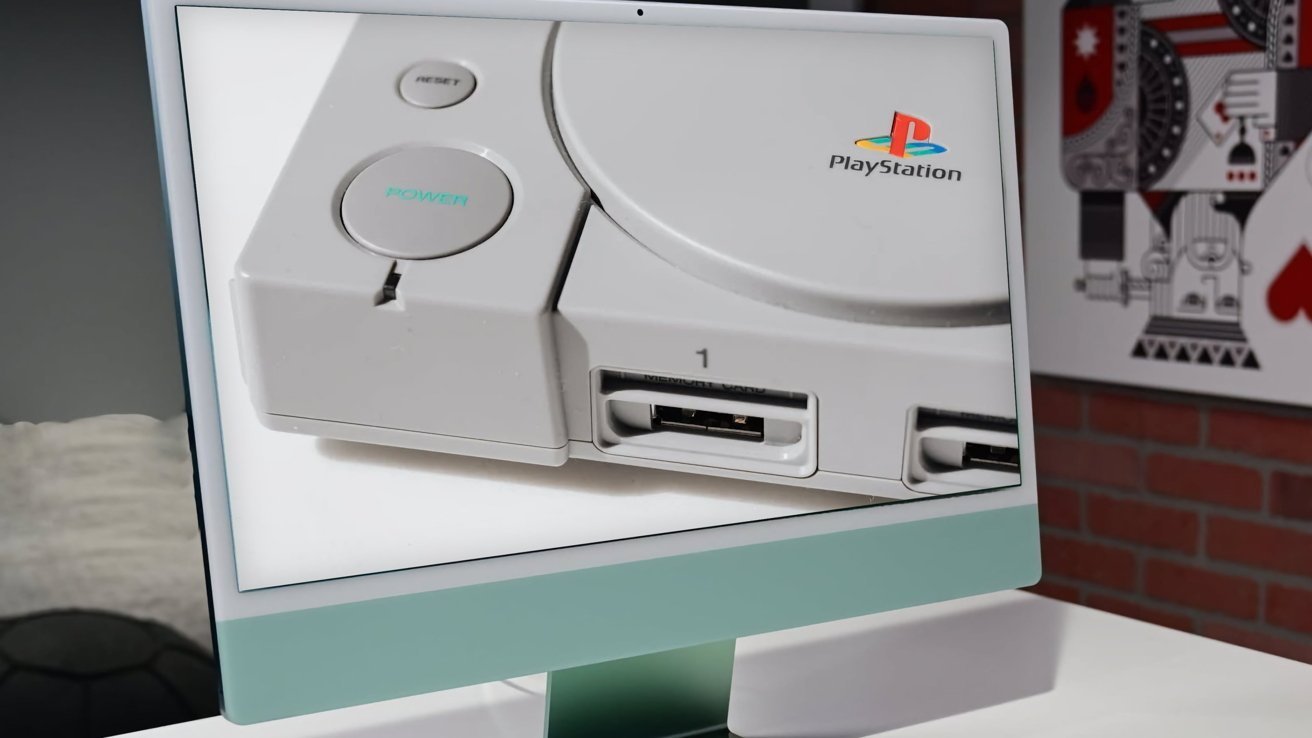Mac Source Ports lets you run older games on modern Macs

If you’re looking to play classic games on a modern Apple Silicon Mac, then Mac Source Ports can likely make it happen. Here’s what the website offers and why it’s worth checking out.
Mac Source Ports is a website launched in 2022 to make older games playable on 64-bit Intel Macs, and machines equipped with M1 or newer Apple Silicon chips. The site does this by offering so-called “source ports” of games and distributing them as signed and notarized macOS application bundles.
In doing so, Mac Source Ports makes it possible to run a wide variety of older PC games on modern-day Apple laptops and desktop computers. The list of available game ports includes some truly archaic titles, such as those belonging to the iconic Doom and Quake franchises of the 1990s, as well as the original Tomb Raider and Half-Life, among others.
To get a better idea of how this is all possible, and why it’s even legal in the first place, it’s important to understand exactly what a “source port” is.
Source Ports — What are they?
According to the Mac Source Ports website, a source port is “someone’s effort to maintain a project derived from the source code to a game.” Game developers will, on some occasions, release the source code of their games and make it available to the general public. This usually happens long after a video game has reached its full potential, to the point where it’s incompatible with modern-day hardware or is no longer being sold.
Once a game’s source code becomes available to the general public via a free, open-source license, developers and enthusiasts are free to use it to their liking. This usually means the developers create a project based on the game’s source code, typically with the intent of porting a game over to a new operating system or hardware platform.
Enthusiasts have ported the original Doom, for instance, and made the game run on all sorts of hardware, including an Apple Lightning to HDMI adapter, the Touch Bar on a MacBook Pro, and much more. It’s worth noting that Doom was originally launched in 1993, making the game undoubtedly antiquated by modern-day standards.
Similarly, Quake III: Arena was released in 1999, while its source code was made available to the public six years later, in 2005. This allowed developers to create a port based on it, known as ioquake3. As noted by Mac Source Ports, this project can be used to play the game on modern Macs even though the original game executables have long since become incompatible.
This is because projects, or source ports, such as ioquake3 are actively being maintained by developers and enthusiasts. The original executables that shipped with the game have, obviously, not received any compatibility-enhancing updates that would make them usable on Apple Silicon Macs.
The legality of source ports
It’s important to understand, though, that in most cases, a source port is only the executable code of a game. Unless a particular game has been released under a free license, users will still need to acquire the game’s data separately, and ideally legally, in order to play the actual game.
In the case of Quake III: Arena, for instance, users will need the source port (ioquake3) and additional data files from the game itself. The latter can only be obtained from an official installation of the game, be it from a disc, from Steam, or from GOG.
In essence, this means that source ports don’t often contain the game in its entirety, but that they, instead, only feature executable code intended to make the game playable on specific platforms and operating systems.
As such, they could, in theory, be distributed via the Apple App Store, albeit under a different name and with a different icon. The creator of Mac Source Ports, however, notes that this would do little more than confuse people and that it would be difficult for Apple to verify that the source port works unless the company’s employees have copies of older games — an unlikely scenario.
Notarization, signing, and universal bundles
A key feature of Mac Source Ports is that it offers notarized and signed versions of game source ports. Notarization simply means that the compiled source port code was submitted to Apple and scanned by the company’s automated systems that determine whether or not malware is present.

The source ports on Mac Source Ports are notarized and signed, but they are not on the Apple App Store.
Signing, on the other hand, applies a certificate of sorts to an executable or library. This is usually done through the use of a paid Apple Developer account, and those are, obviously, not available to everyone.
Mac Source Ports’ decision to offer signed and notarized ports is far from an arbitrary one, as modern versions of macOS increasingly require signed and notarized code. Without it, users would need to take additional steps when launching a game source port, or it might not even run at all, in some cases.
The website also offers so-called universal application bundles, meaning that most of the source ports available on the Mac Source Ports website are compatible with both 64-bit Intel and Apple Silicon Macs, effectively making older games playable on a variety of contemporary Mac configurations.
The different game ports available on Mac Source Ports
The selection of source ports on the Mac Source Ports website is vast, with most of the available ports being for games dating back to the 1990s or early 2000s.

A source port for the original Half-Life is listed on the Mac Source Ports website.
Source ports of Doom and Doom II are readily available for download, which makes sense given that the games can run on just about anything with a CPU and a screen. The same can be said for the Quake franchise as well, which is also playable on modern Macs thanks to downloads either from or linked by the website.
Duke Nukem 3D and Duke Nukem II are also listed as having source ports, as is the case with Fallout and Fallout 2. Source ports for various 1990s titles belonging to the Indiana Jones and Star Wars franchises are on the Mac Source Ports website as well.
The list also includes Valve’s iconic Half-Life from 1998, along with Half-Life: Opposing Force as well as Half-Life: Blue Shift.
The utility of Mac Source Ports, why it matters
While Half-Life has been available on Mac via Steam for several years, that version of the game features a 32-bit executable. This means that, by default, it won’t run on macOS 10.15 Catalina or newer, as Apple dropped support for 32-bit applications with this operating system version.

Source ports can be used to run various 1990s games on a Mac, negating the need for emulators in some instances.
This serves as the perfect illustration of how Mac Source Ports, or even source ports in general, can save the day and make older games once again playable on modern versions of macOS. Apple Silicon Macs can’t install macOS 10.14 Mojave natively, meaning that they are incapable of running games like Half-Life without a source port or emulator.
By offering source ports of older games, Mac Source Ports presents Mac enthusiasts and gamers with an alternative, effectively reducing their reliance on products such as Parallels Desktop if they only want to play specific games. Some users no longer need to emulate Microsoft Windows in its entirety, which could ultimately lead to better performance.
The source ports themselves are also actively maintained, notarized, and signed, which is a great convenience for users. This means that the source ports available for download are unlikely to contain malware. As such, they can be downloaded and used on a modern-day Mac with relative ease, making the experience enjoyable for vintage game enthusiasts who use a Mac.

